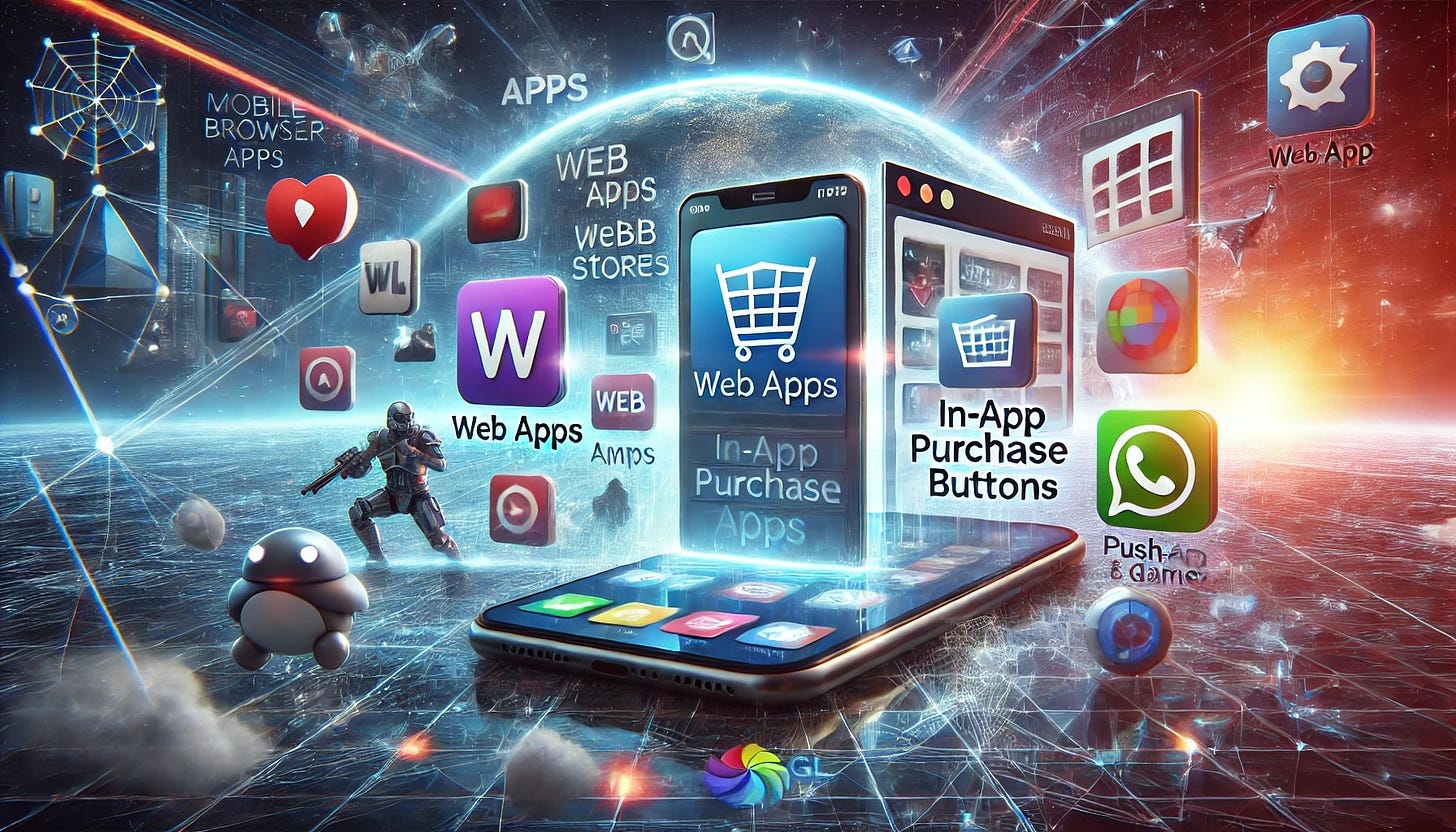About the author
Joakim Achren
General Partner @ F4 Fund, Co-Founder @ Next Games (acquired by Netflix), the most helpful investor on your cap table 🫡

Journal 8 Joakim Achren September 27

Right now, a huge opportunity is emerging for mobile browser apps. Let me explain why. But first, let’s take a step back and look at the broader landscape of mobile applications being downloaded from app stores. Many have recently speculated about the potential decline of dominant app stores run by Apple and Google. In early 2024, Epic Games launched its web store in Europe, and it’s believed that other major players, including Microsoft, will follow suit with their app stores.
Consider this: giants like Epic and Microsoft possess a wealth of intellectual property in their back catalog, which they would eagerly distribute to mobile users through their channels. Think about titles like Minecraft, Candy Crush, and Call of Duty. Suddenly, they wouldn’t need to share revenue with device manufacturers.
Now, let’s delve deeper into how these app store apps perform more granularly.
Mobile app store products live from acquisition, engagement, retention, and monetization. Developers have optimized the engagement, retention, and monetization metrics, and a downloadable app offers a perfect and seamless user experience.
But on the user acquisition side, it’s always felt like a hacked-together mess. You have all these platforms like Facebook, showing ads that take the user to an app store page to download the app, and praying that they eventually launch the app.
It’s very inefficient. If you look at click-to-install conversion, it’s not pretty.
According to AppsFlyer benchmarks from a 2021-2022 study, click-to-install conversion rates typically range between 5% and 10%, depending on the ad network and app category.
Then you’ve got install-to-open conversion, which is not much prettier.
Liftoff has also shared some staggering numbers. Their report highlighted an average install-to-open rate of about 25-35% for mobile apps, which can be higher or lower based on the quality of the app and user acquisition strategies.
What if there were no app stores and every app and game lived in the browser? What would acquisition, engagement, retention, and monetization look like?
For user acquisition on the browser, clicking an ad and immediately loading up would result in almost a 100% conversion from click-to-open, skipping the whole install conversion need.
But then, you must also address engagement, retention, and monetization. Especially the notoriously bad retention of browser apps is a good reason why we are stuck with downloadable apps. During my days as a mobile developer and an investor in this space, I’ve seen browser mobile games suffering from 10%-20% retention day-1 numbers, whereas a mobile app would most likely gain at least 30% and above day-1 numbers.
Why is retention so bad? Once the user has been in the app for a while and decides to leave, how do they navigate back to a browser-based app? There’s no desktop icon like you’d have with an app store install. The current fix is that the browser app can instruct users to use the cumbersome “Add to home screen” process, which has evident conversion problems.
But, in fairness, these problems are not dissimilar to the requests that app install ads put on users.
Push notifications are getting solved. With the release of iOS 16.4 in 2023, Apple introduced a feature that allows web apps added to the Home Screen to send push notifications. This is solving so many things on the retention side.
Then you’ve got WebGL, which is gaining much traction among game developers. Browsers can now deliver 3D graphics without plugins or downloads. The quality is nearly on par with native apps, which makes this a potential game-changer for mobile browser gaming.
On another note, monetization is finally being figured out with the rise of web shops. For example, AppCharge, a leading player in this space, has launched easily deployable browser-based shops that allow in-app purchases without the platform tax.
In addition to in-app purchases, ad monetization on browsers is seeing impressive conversion rates. Thanks to the recent browser initiatives from Apple and Google, retention is also catching up with native apps. It’s coming together into a seamless, attractive package.
So, where is the potential for VC investments now? I’ve developed three distinct concepts where VC could have a meaningful outcome.
I would love to hear counter-arguments in the comments. I’m here to share and learn.
About the author
General Partner @ F4 Fund, Co-Founder @ Next Games (acquired by Netflix), the most helpful investor on your cap table 🫡
Please login or subscribe to continue.
No account? Register | Lost password
✖✖
Are you sure you want to cancel your subscription? You will lose your Premium access and stored playlists.
✖